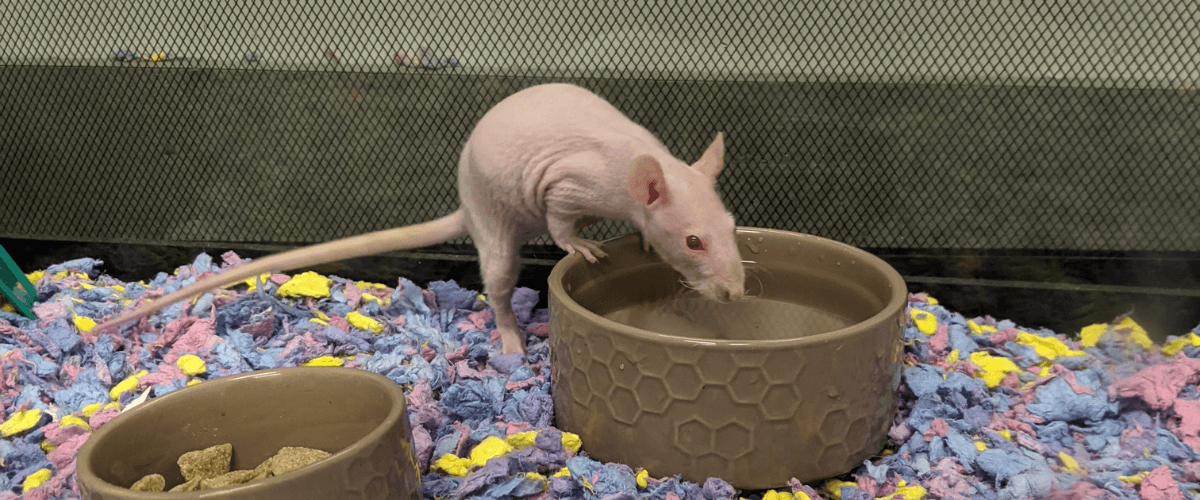
Exotic Pet Services Offered at Lombard Veterinary Hospital
At Lombard Veterinary Hospital, we know that pets come in all shapes and sizes. Now we are more exotic pet-friendly than ever because as of October 2022 we now see birds of all species. As with dogs and cats, exotic pets benefit from annual wellness exams for the early detection of health issues. Our experienced veterinarians are capable of medically assessing a broad variety of species, and are well-versed in the husbandry and care of these species. Inadequacies in husbandry and care are the most common reason for many exotic pets to present with illness due to their unique temperature, humidity, housing, social, and dietary requirements.
Pets treated include the following; Rabbits, Chinchillas, Guinea Pigs, Rats, Mice, Gerbils, Hamsters, Degus, Prairie dogs, Hedgehogs, Ferrets, Sugar Gliders, Parrots, Chickens, Ducks, Geese, Pigeons Finches/Canaries, Starlings, Mynahs, Lizards, Snakes, Turtles/Tortoises, Frogs, and Salamanders. However, the type of exotic pet that we will see is not limited to this list. If your pet is not listed, please contact us to find out if we can care for your exotic pet. It is important for us to note that our Exotic Veterinarians will not see primates, fish, venomous reptiles, or wildlife. If you find an injured wild animal, please get in touch with Willowbrook Wildlife Center for further assistance.
Reptiles, birds, and small mammals require the same yearly wellness examinations and emergency care as our canine and feline companions. We have compiled a list of the most common reasons exotic pet owners bring their pets in for veterinary care.
Types of Exotic Pets Seen at Lombard Veterinary Hospital
 Snakes
Snakes
Snakes can be challenging, but rewarding pets due to their infrequent feeding schedule, temperature, substrate, and humidity requirements. Snakes are commonly seen for viral or bacterial upper respiratory disease, stomatitis (mouth rot), difficulty shedding (dysecdysis), internal parasites (Coccidia, worms), difficulty passing stool, External parasites (scale mites), infectious viral diseases such as adenovirus, inclusion body disease, nidovirus, and ferlavirus.
 Rabbits
Rabbits
Pet rabbits are sweet, intelligent, and social animals that were domesticated from the European rabbit. They are very energetic pets that love to run, play, and "binky" when happy and healthy. They can live 10+ years with appropriate care. Rabbits are highly adept at hiding signs of illness until they become very sick due to their nature as a prey animal, so it is important to have periodic wellness visits to make sure there is no sign of subtle illness. Rabbits commonly suffer from dental malocclusion and overgrowth, skin abscesses, gastrointestinal slowdown (GI stasis), upper respiratory disease including "snuffles", urinary tract infection, urinary stones, external parasites (such as mites, fleas, Cuterebra bot fly), internal parasites (Coccidia). Rabbits are also one of the rare exotic pets for which we recommend yearly vaccination: Rabbit Hemorrhagic Disease Virus (RHDV). For information on getting the vaccine for RHDV, please contact us by phone or email.
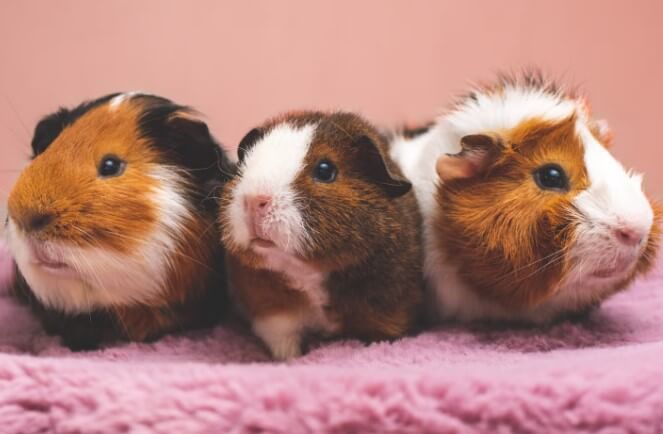 Rodents
Rodents
Rodents comprise the largest group of mammals on earth, with over 1,500 species. Several species are commonly kept as pets, and though rodents are related to each other, different species may require very different living conditions and diets. Chinchillas and Guinea Pigs ferment their food in their gut like a rabbit or horse in order to extract nutrients, while a rat is an omnivore with a digestive tract more akin to a human's. Rats may live only 2-3 years, while Chinchillas can live over 20 years. Rodents are commonly seen for dental malocclusion and overgrowth, upper respiratory infections, skin abscesses, growths and tumors, eye ulcers, and limb or spine injuries from falls.
 Hedgehogs
Hedgehogs
The African pygmy hedgehog is becoming an ever more popular pet due to its adorable appearance and unique behaviors such as "anointing". Hailing from the savannah of west, central, and eastern Africa, these solitary, nocturnal insectivores have strict temperature and dietary requirements and can suffer from illness if their husbandry parameters are not met. Hedgehogs are most commonly seen for assessment of dental disease, upper respiratory infection, diarrhea, growths and tumors, uterine infection, and neurologic issues such as "wobbly hedgehog syndrome".
 Ferrets
Ferrets
Ferrets are entertaining and interactive small carnivores that were domesticated from the European polecat. They are characterized by their long flexible bodies and variety of fur colors. Pet ferrets are independent and friendly pets that live about 5-8 years in captivity with appropriate care. Ferrets are most commonly seen for gastrointestinal infections/diarrhea, Adrenal gland disease, insulinoma (a tumor of the pancreas that causes low blood sugar), foreign object ingestion/vomiting, tumors and growths, and spinal injuries.
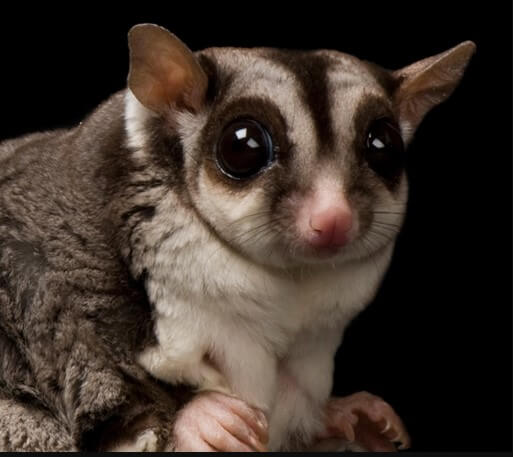 Sugar Gliders
Sugar Gliders
Sugar gliders are nocturnal, arboreal marsupials originally from New Guinea and southern Australia. They are well known for their ability to glide through the air using a thin membrane of skin between their front and back legs. Sugar gliders require diligent care and can be complicated pets to care for, especially with regards to diet, for which there is no one commercially available “complete” diet. Sugar gliders that have sub-optimal husbandry can suffer from protein and mineral deficiency, metabolic bone disease (nutritional secondary hyperparathyroidism), injury from an inappropriate environment, and self-mutilation. Sugar gliders may also be treated for intestinal protozoal parasites, dental disease/abscesses, gastrointestinal bacterial overgrowth, pouch infection, and certain types of tumors.
 Lizards
Lizards
Lizards, along with snakes, comprise the order Squamata, the largest and most diverse group of living reptiles with over 10,900 species. As such, lizard anatomy and husbandry can vary greatly from one species to another. Common pet lizards include the bearded dragon, leopard gecko, crested gecko, veiled chameleon, blue-tongued skink, Argentine tegu, and the green iguana -- though many other species are also kept as pets. Lizards are very sensitive to their environment and require close attention to temperature, ultraviolet lighting, humidity, diet, substrate, and cage "furniture". Deficits in care at home lead to the majority of lizard illnesses such as nutritional secondary hyperparathyroidism (metabolic bone disease), fractures to the limbs, stomatitis (mouth rot), dysecdysis (trouble shedding), reproductive issues such as retained ovarian follicles and hemipenal plugs.
 Turtles & Tortoises
Turtles & Tortoises
Turtles and Tortoises or "Chelonians" are variable in size and habitat ranging from the four-inch, aquatic common mud turtle to the terrestrial, >100lbs Sulcata tortoise. Chelonians can be great pets and live a very long and healthy life with proper husbandry. Turtles and tortoises are hardy and can hide signs of illness for weeks to months--underlining the importance of regular veterinary visits to ensure a good state of health. Some of their health issues include nutritional secondary hyperparathyroidism (metabolic bone disease), dermatitis, ear abscesses, respiratory disease, "shell rot" (Carapacial osteomyelitis), intestinal parasites, and reproductive problems such as cloacal prolapse and "egg binding".
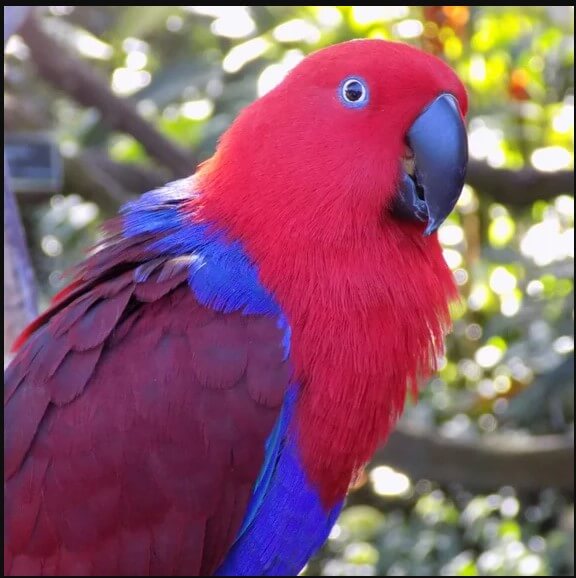 Psittacine birds (Parrots)
Psittacine birds (Parrots)
Psittacines are tropical or subtropical birds comprising nearly 400 species from around the world. These birds are valued as pets for their intelligence, sound mimicry, and vibrant coloration. Parrots range greatly in size from the minuscule Pacific parrotlet to the massive Hyacinth macaw nearly 50 times its size. There is a great variety in dietary needs and husbandry requirements between different species of parrot which makes research critically important before making one of these birds your pet. Parrots can be challenging pets due to their powerful beaks, noise level, and need for intensive social interaction. Parrots are commonly seen for upper respiratory infections, gastrointestinal bacterial overgrowth/diarrhea, broken blood feathers, feather-destructive behavior, beak malocclusions, hepatic lipidosis (liver disease), injured wings or legs, atherosclerosis, and kidney disease.
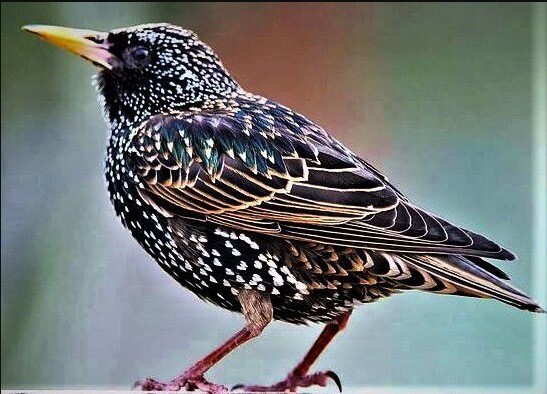 Passerine Birds (Songbirds)
Passerine Birds (Songbirds)
Songbirds can be great companions due to their small size, beautiful vocalizations, and interesting coloration. Some songbirds like the European starling can even mimic human speech. Common pet songbirds include canaries, zebra finches, and starlings, Songbirds are prey animals, and as such, they are adept at hiding signs of illness. Yearly checkups and fecal testing are crucial to identifying illness before it becomes serious. Common problems seen with passerines include mite infestation, beak overgrowth, gastrointestinal bacterial or fungal overgrowth, and upper respiratory infection.
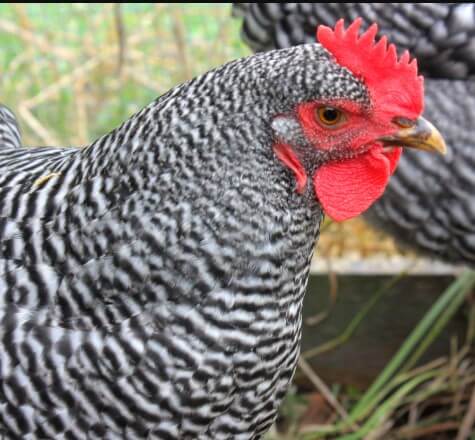 Galliformes (Chickens, Turkeys, Quail, and Peafowl)
Galliformes (Chickens, Turkeys, Quail, and Peafowl)
Galliformes or “landfowl” are becoming increasingly popular as backyard pets for hobbyists, and are kept for companionship and as a source of eggs. These birds are known to be hardy and boast big personalities. Backyard fowl may not be allowed in certain towns or cities, so it is important to check local ordinances before committing to owning one of these birds. Certain birds, such as chickens, benefit from in-egg or day-1 vaccinations against diseases such as Marek’s. Common problems seen with Galliformes include upper respiratory infection, pododermatitis (bumblefoot), gastrointestinal bacterial or fungal overgrowth, hindlimb lameness or injury, “egg binding”, feather mites, and parasitic worms and protozoans of the GI tract.
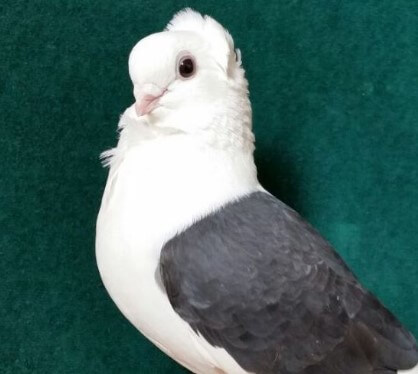 Pigeons and Doves
Pigeons and Doves
Pigeons and doves are a diverse group of birds belonging to the Columbiformes. Out of many species, the domesticated rock dove is the most common with roughly 800 breeds represented, though ringneck doves, collared doves, turtle doves, and diamond doves are also kept as pets. Pigeons are the oldest domesticated bird and are suspected to have lived alongside humans for 10,000 years. Pigeons make gentle, relatively quiet, and interactive pets and are readily adoptable by organizations such as the Great Lakes Pigeon Rescue. Some pigeons are used for the sport of pigeon racing as well. Pigeons benefit from annual wellness exams and should have their bloodwork and feces tested to ensure that they are free from disease. Pigeons and doves are commonly seen for crop and GI infections, respiratory disease, wing or leg injuries, “egg binding”, and ocular injuries.
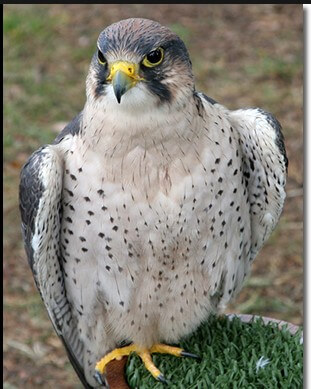 Raptors (birds of prey)
Raptors (birds of prey)
"Bird of prey" is a broad term used to describe predatory birds including hawks, eagles, owls, and falcons, among others. From a veterinary context, raptors are most commonly seen when used for falconry (the art of hunting using a bird of prey). Falconry is a highly regulated and challenging art that requires a great deal of knowledge regarding the natural history, diet, behavior, and husbandry of the particular species of bird. Falconers must start as an apprentice to a master falconers, must have proper documentation in order to practice, and must know and abide by all relevant laws pertaining to falconry. Generally, never attempt to take a wild bird of prey as a pet unless apprenticed to and under the direct supervision of a master falconer. Birds of prey should receive annual checkups to obtain bloodwork, fecal cytology, and occasionally x-rays to ensure they are in optimal health. Common reasons to see a bird of prey include bacterial or fungal respiratory infections, vaccination against West Nile Virus, leg injuries or swelling, pododermatitis (bumblefoot), and internal parasites.
When Should You Take Your Exotic Pet To The Vet?
As it is mentioned above, small mammals and reptile pets need yearly wellness exams and sometimes do have emergencies that need to be attended to as soon as possible. Please do not hesitate to contact us and schedule an appointment for your exotic pet. If we are not able to see your exotic pet here at Lombard Veterinary Hospital, please contact either one of the below local exotic hospitals.
Chicago Exotics
3757 Dempster St, Skokie, IL 60076
Phone Number: (847) 329-8709
VCA West Suburban Animal Hospital
518 N Warwick Ave, Westmont, IL 60559
Phone Number: (630) 968-4212
Ness Exotic Wellness Center
1007 Maple Ave, Lisle, IL 60532
Phone Number: (630) 737-1281
Midwest Bird & Exotic Animal Hospital
7510 W. North Ave., Elmwood Park, IL 60707
Phone Number: (708) 453-8181
